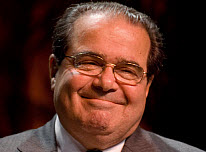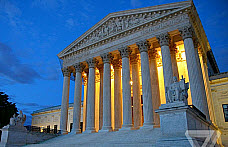By Craig Andresen Right Side Patriots http://www.americanpbn.com/
Suddenly, with the death of Justice Scalia, the appointment of a ninth Justice to the Supreme Court has take n on more weight than most would have previously believed necessary in this, an election year.
n on more weight than most would have previously believed necessary in this, an election year.
Just as weighty as the decision as to who should nominate our next Supreme Court Justice is how any nominee will view Constitutional theory or how that person will interpret the Constitution.
Along those lines, there are five basic theories of Constitutional interpretation. Generally, those theories are as follows: (1) the text and structure of the Constitution, (2) intentions of those who drafted, voted to propose, or voted to ratify the provision in question, (3) prior precedents (usually judicial), (4) the social, political, and economic consequences of alternative interpretations, and (5) natural law. There is general agreement that the first three of these sources are appropriate guides to interpretation, but considerable disagreement as to the relative weight that should be given to the three sources when they point in different directions. Many interpreters of the Constitution have suggested that the consequences of alternative interpretations are never relevant, even when all other considerations are evenly balanced. Natural law (higher law, God’s law) is now only infrequently suggested as an interpretive guide, even though many of the framers of the Constitution recognized its appropriateness. Persons who favor heavy reliance on originalist sources (text and intentions) are commonly called “originalists.” Persons who favor giving a more substantial weighting to precedent, consequences, or natural law are called “non-originalists.” In practice, disagreement between originalists and non-originalists often concerns whether to apply heightened judicial scrutiny to certain “fundamental rights” that are not explicitly protected in the text of the Constitution.
Continue reading →
 are tying themselves into knots at…not the prospect, but the reality…that President Trump will appoint yet another Justice to the nation’s highest court.
are tying themselves into knots at…not the prospect, but the reality…that President Trump will appoint yet another Justice to the nation’s highest court.




